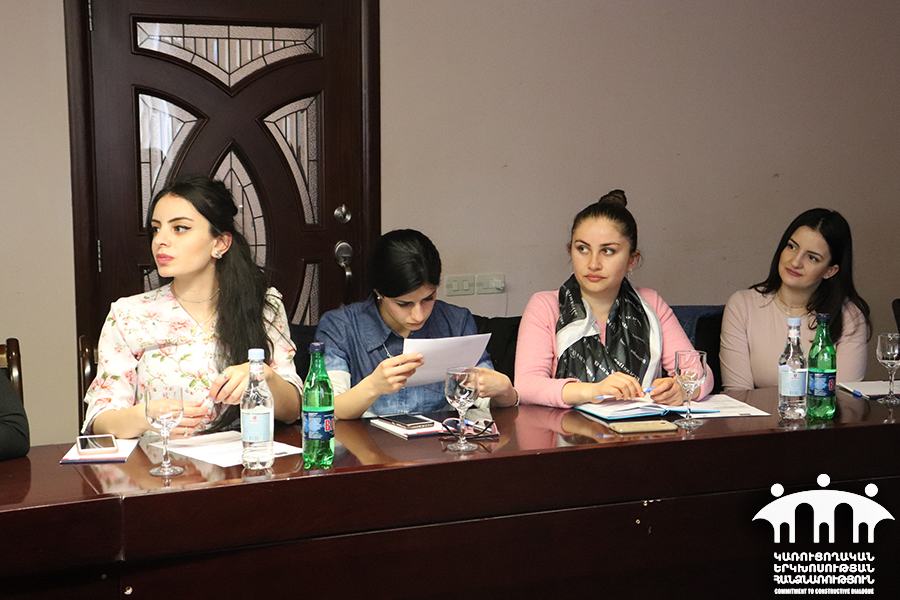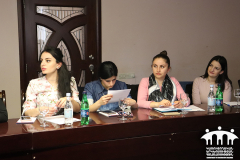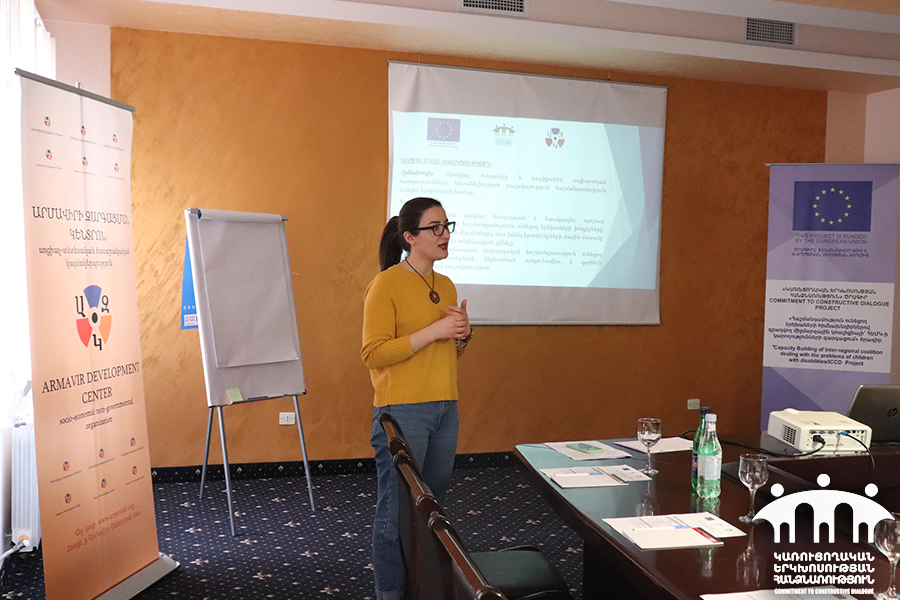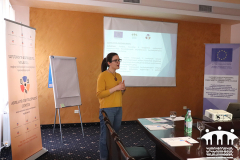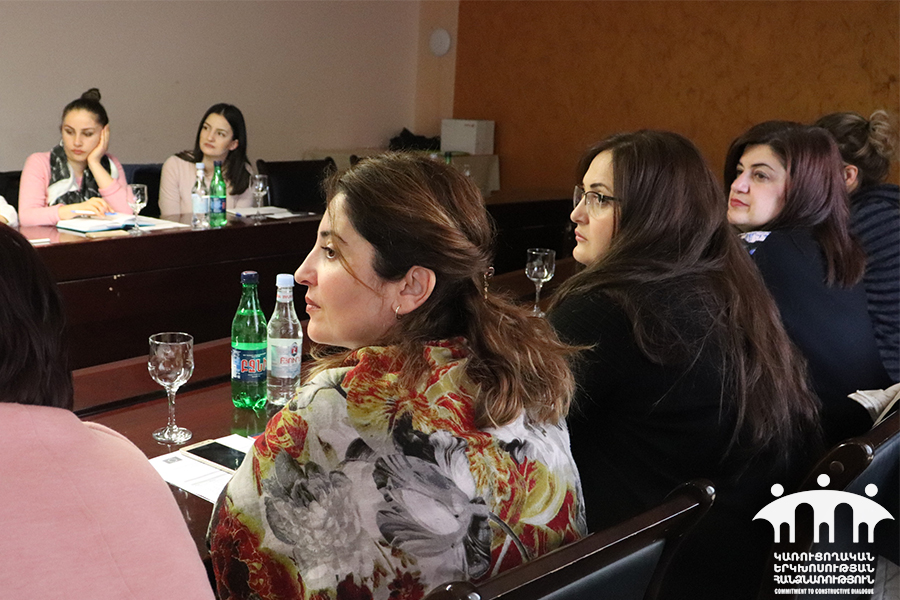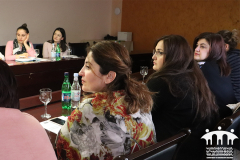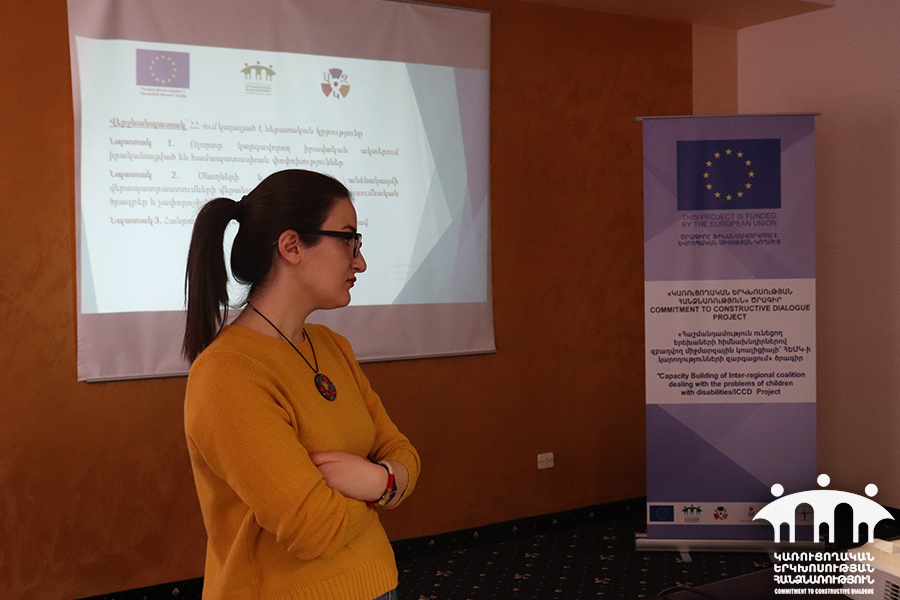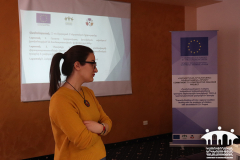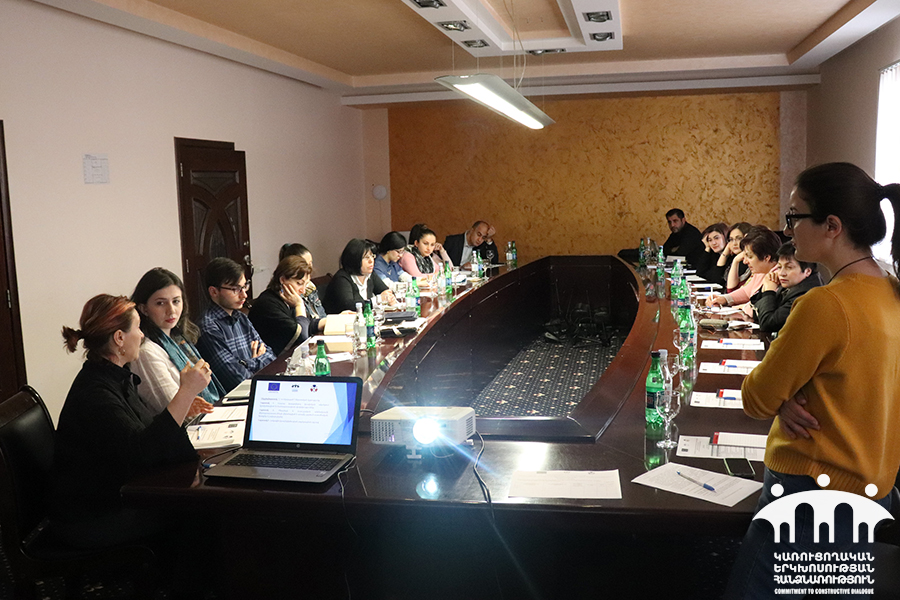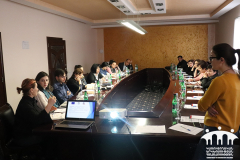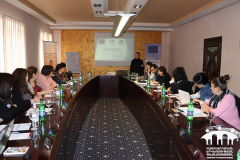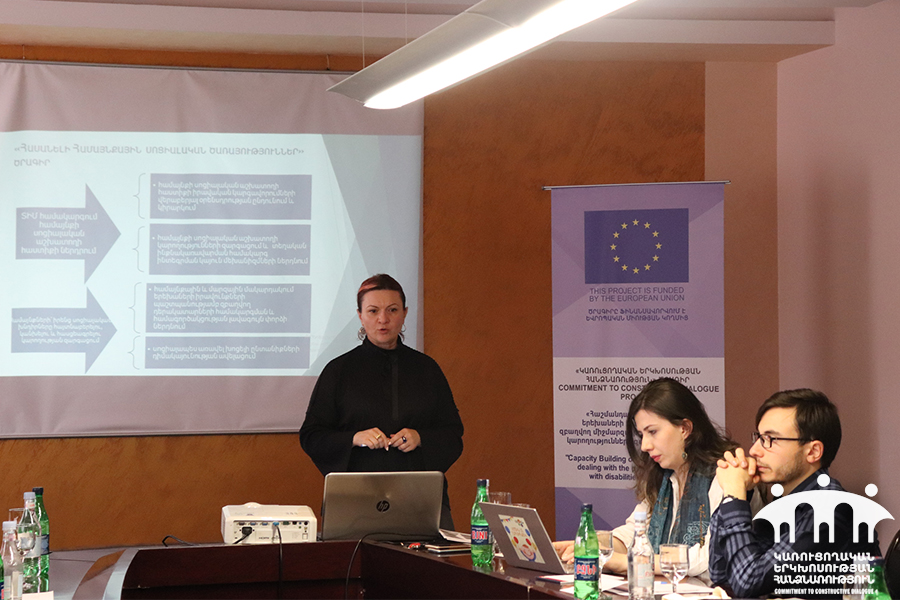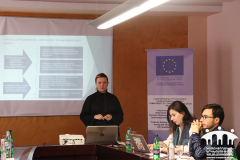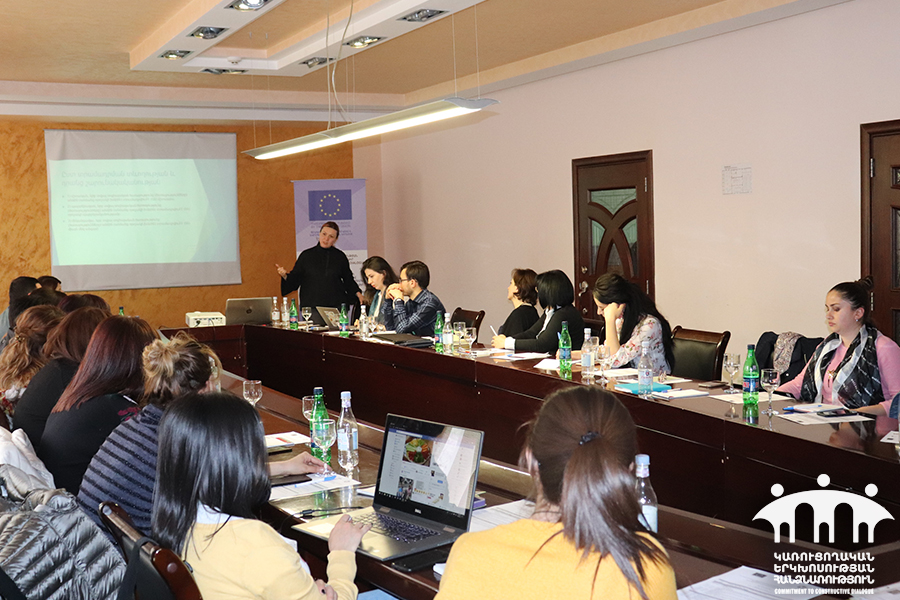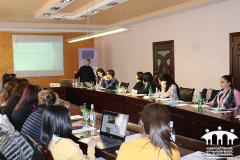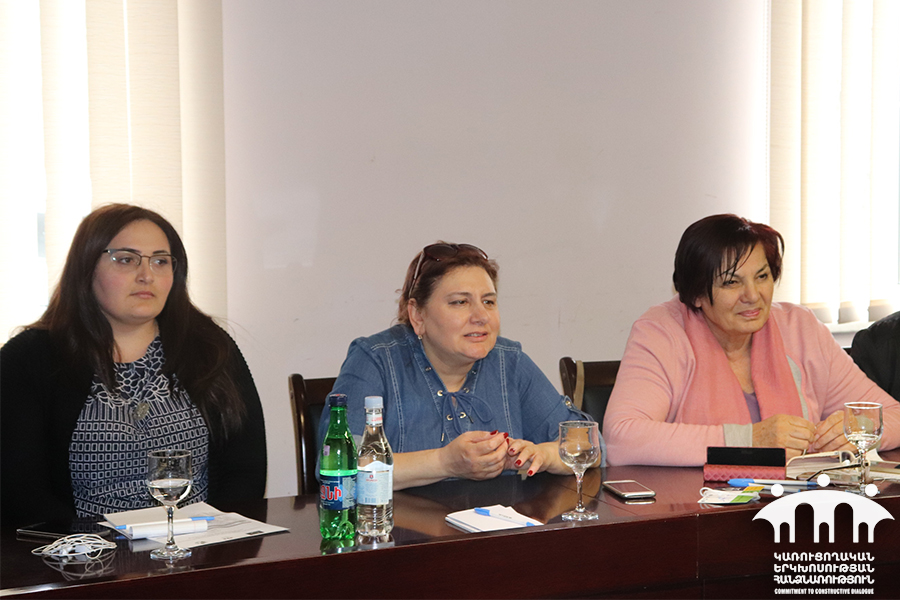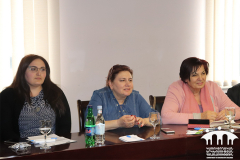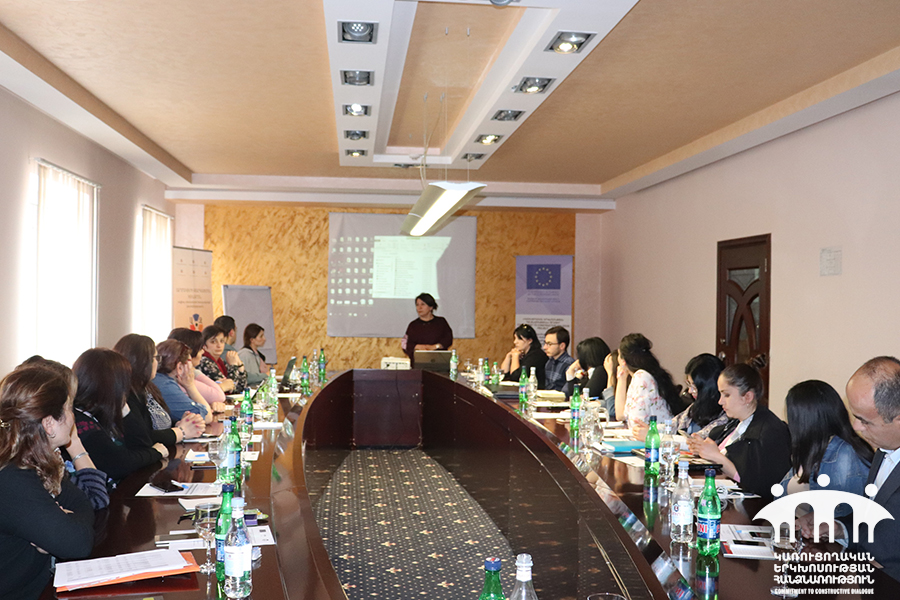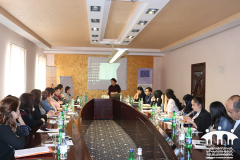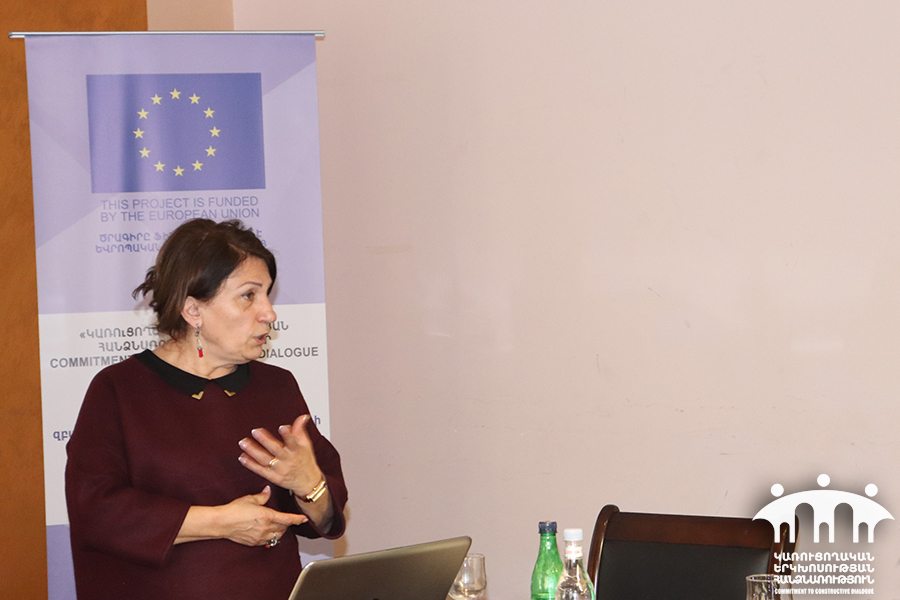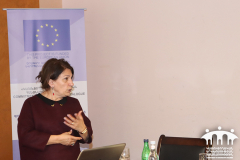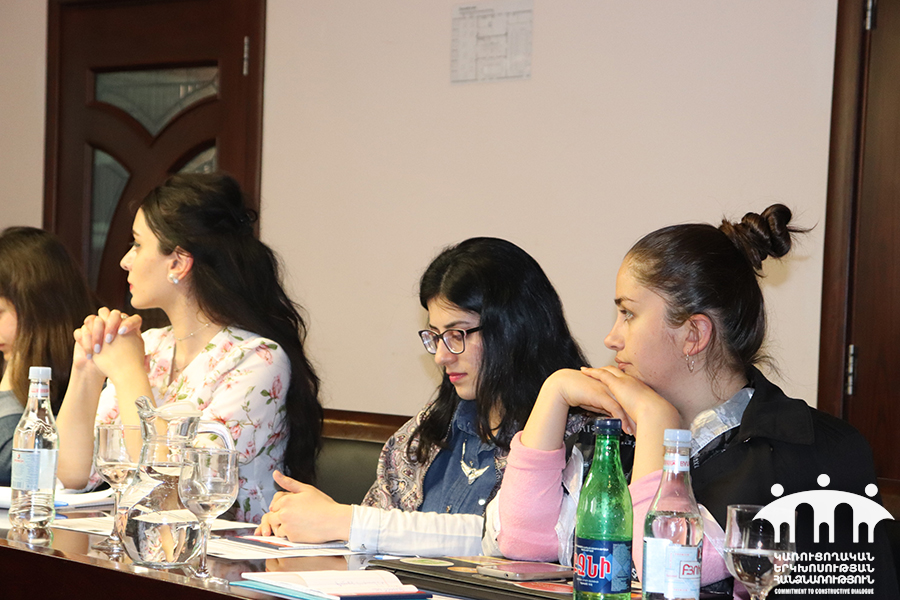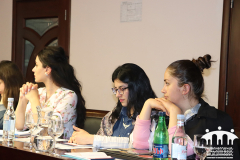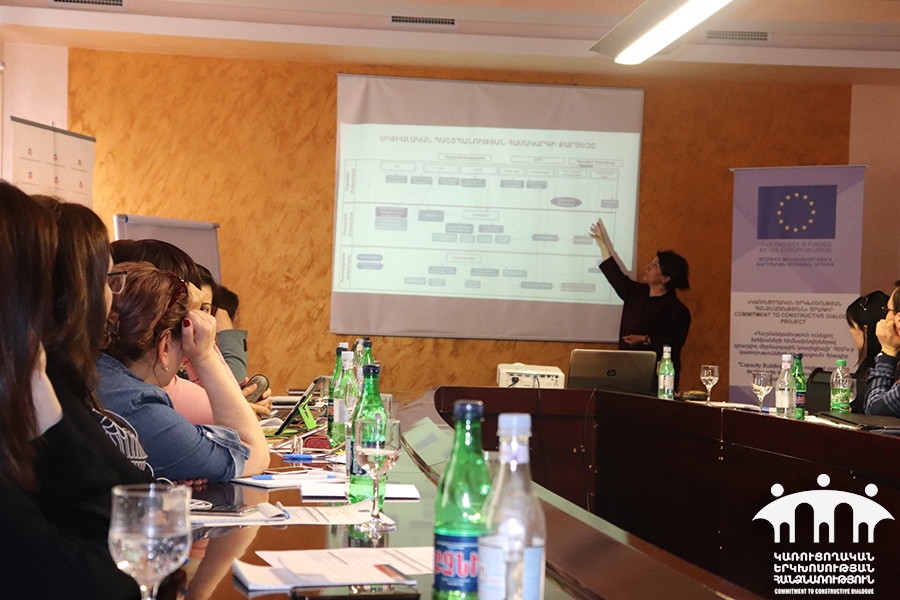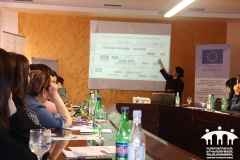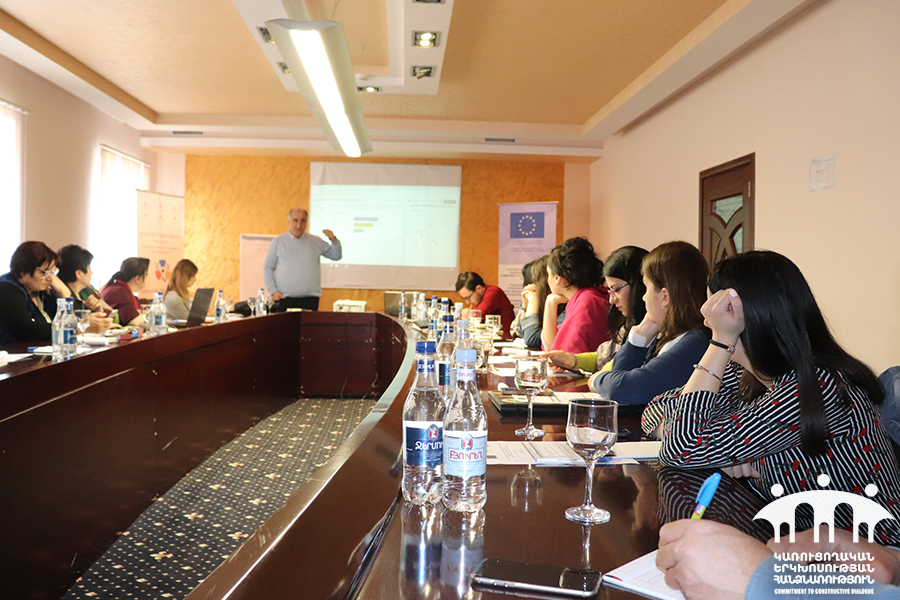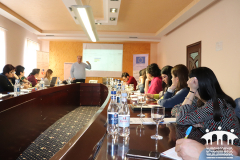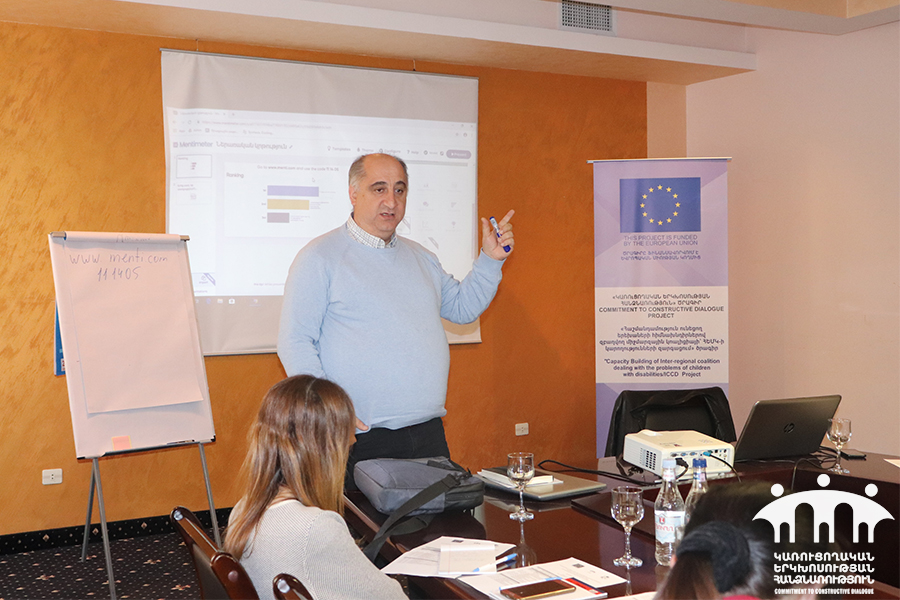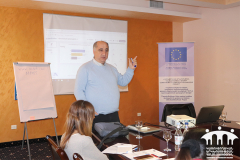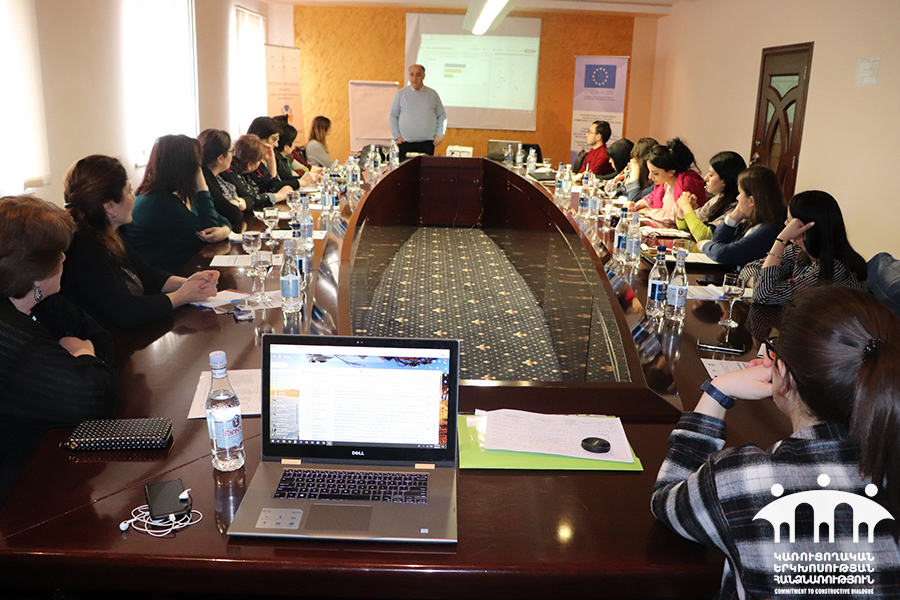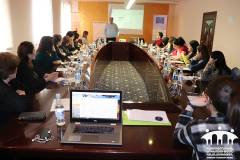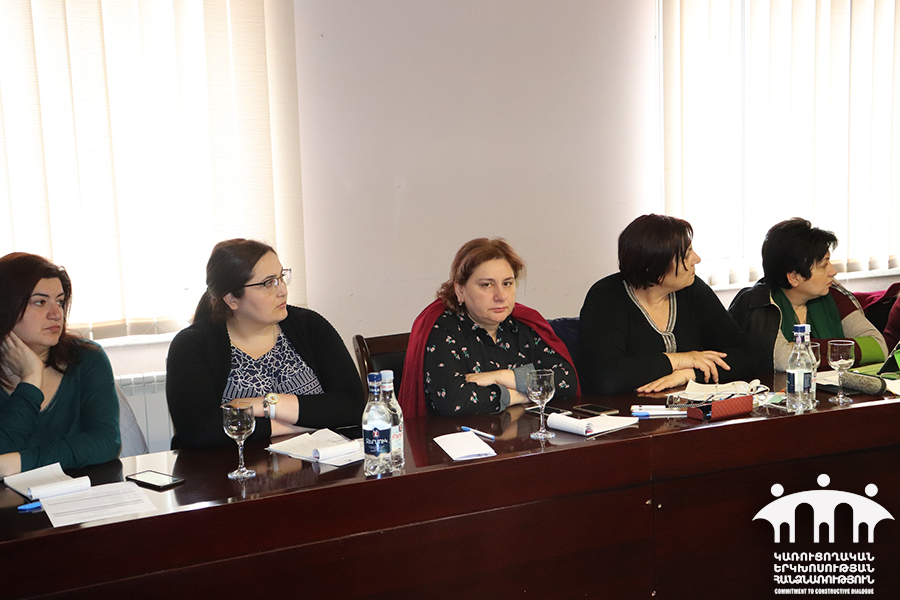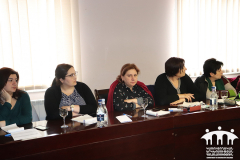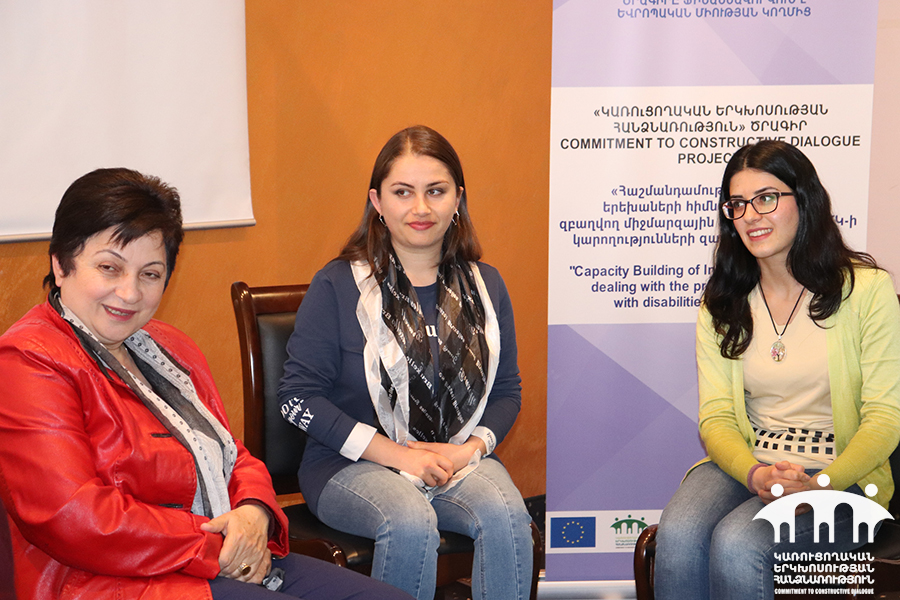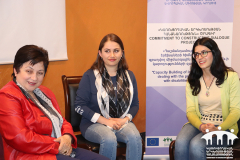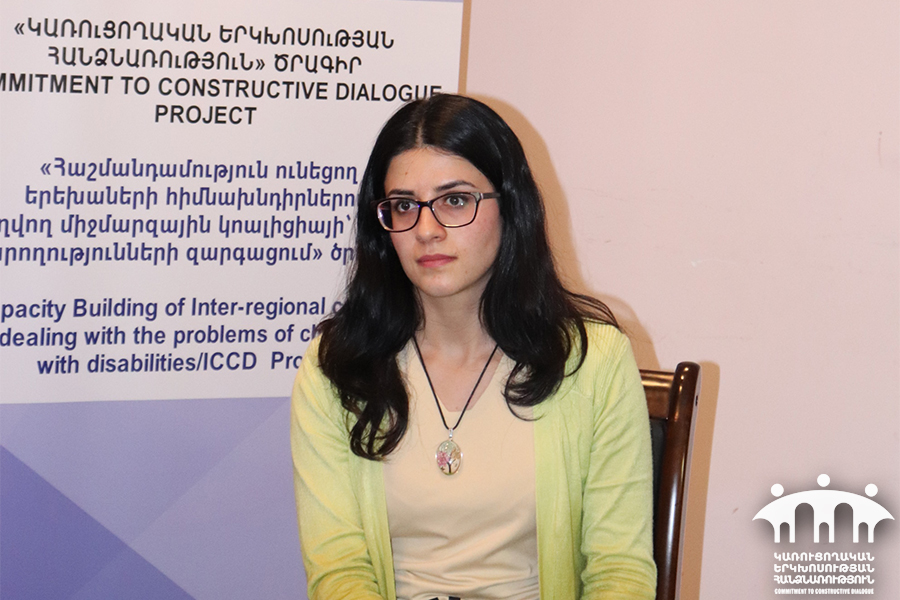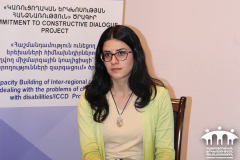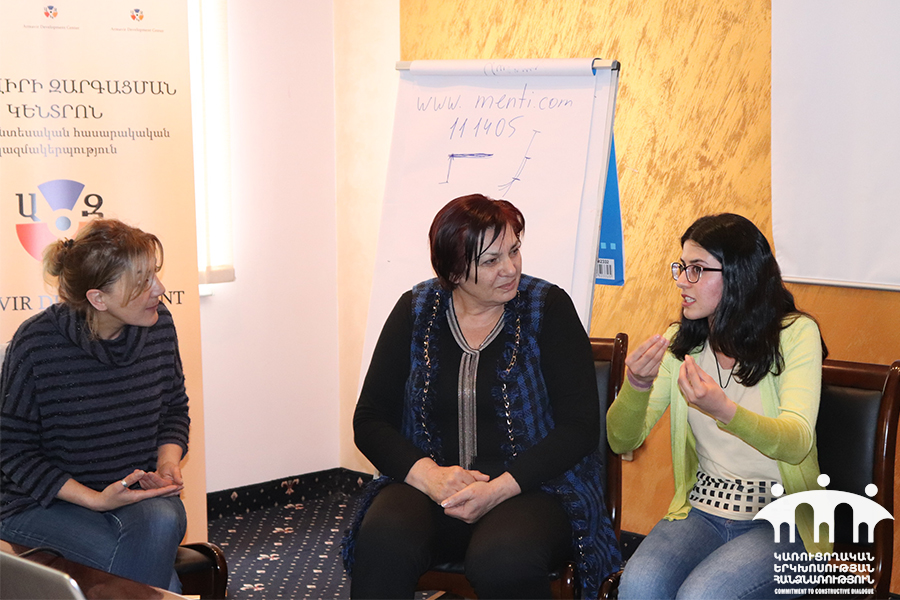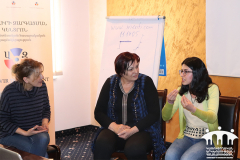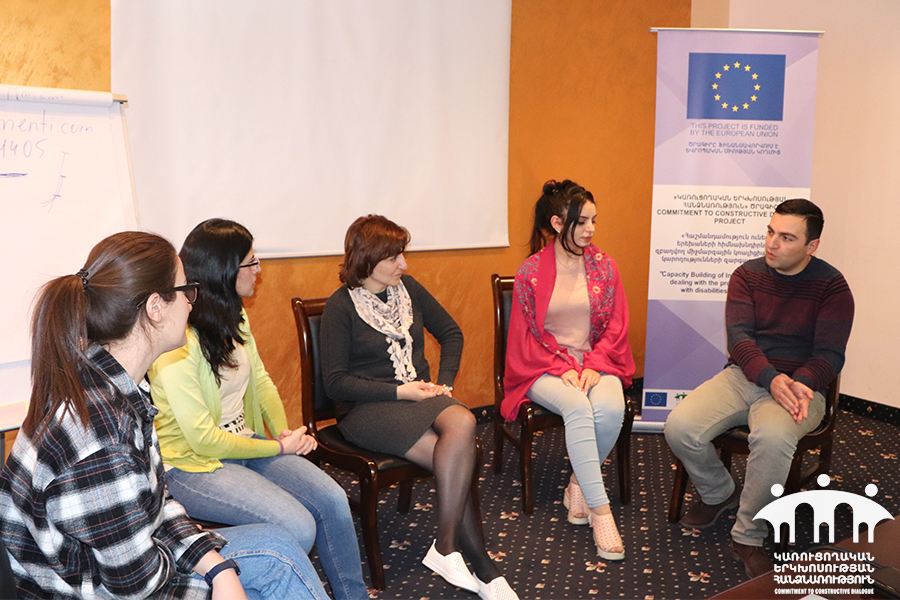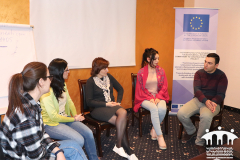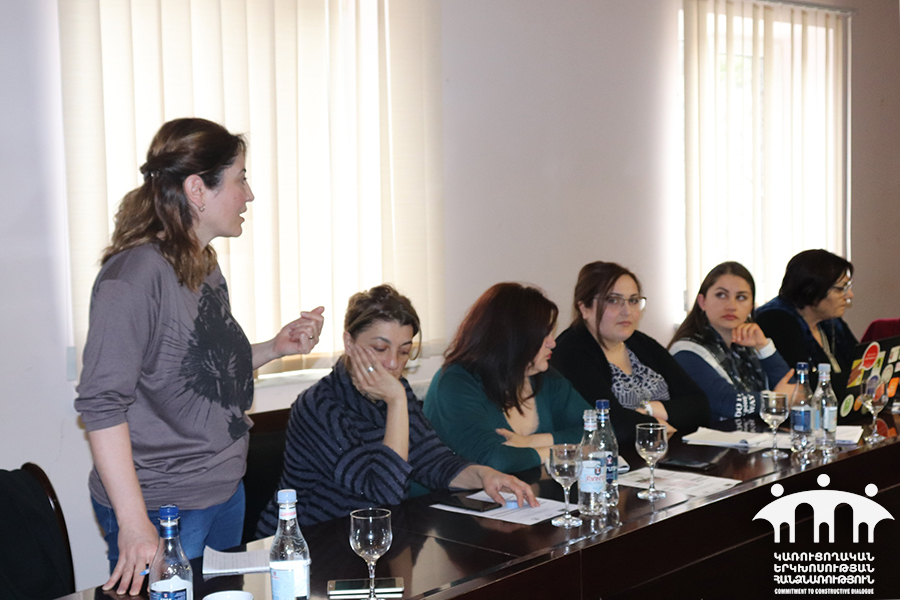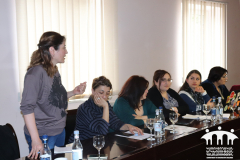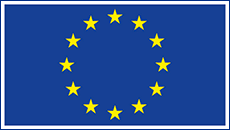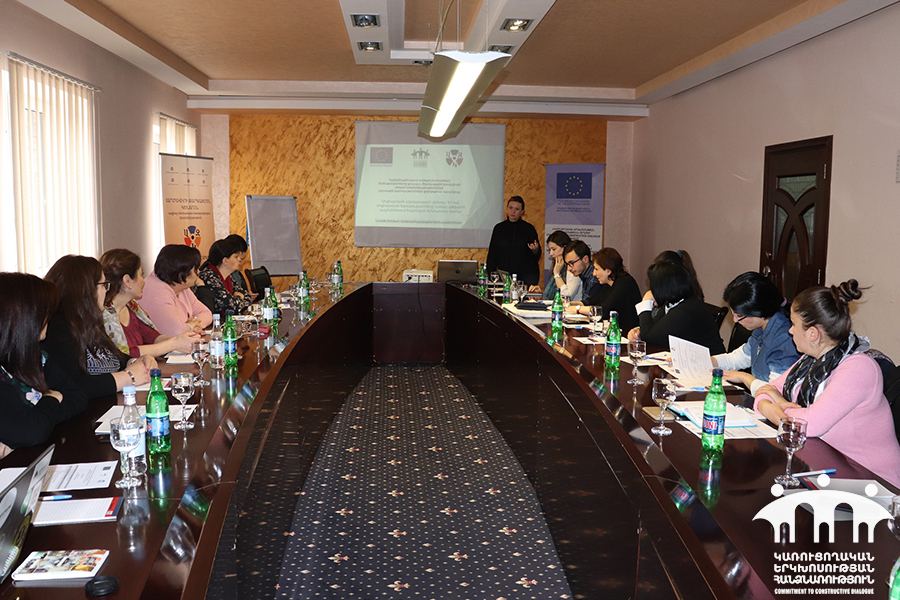
The Inter-Regional Coalition to Deal with Issues of Children with Disabilities, which has been created in the scope of the EU funded “Commitment to Constructive Dialogue” Project organised a two-day training course on social development and inclusive education in Aghveran on April 19-20.
On the first day of the training, Ms Lusine Simonyan, the Director of the Child Development Foundation presented the state of social assistance in Armenia, social services and their types for children in difficult life situations.
Social assistance is the provision of one or more social services to a person (family, other social group) for the purpose of preventing or overcoming the difficult situation of life by the Republic of Armenia and/or the local self-governing body. Everyone residing in the Republic of Armenia, RA citizens, foreign citizens having a residence permit (legally resident), persons without citizenship, as well as persons having refugee status in the Republic of Armenia have the right to social assistance in the presence of the grounds prescribed by law. The social services system was officially introduced in Armenia in 1993. One of the important steps taken within the framework of social protection reforms was the introduction of the integrated social services system in 2012.
The speaker also briefed the participants on the legal acts regulating social assistance sector and then discussed the existing shortcomings.
The speaker of the second part of the first day was Ms Mira Antonyan, president of the Armenian Association of Social Workers. She first welcomed and highlighted the activities of the Inter-Regional Coalition to Deal with Issues of Children with Disabilities and wished success to the member organisations in their future plans.
Then she delivered a speech, presenting the current problems of the social assistance system, the map of the social assistance system in Armenia, also touched upon the international good practice, drawing parallels with our reality.
A number of institutional changes needed by the social assistance sector in Armenia were also discussed with the Coalition member organisations, such as: development and introduction of unified standards for social services, changing the nature of inter-agency relations, creating a more efficient regional level social services agency, and other.
On the second day of the training, Mr. Serob Khachatryan, an expert in education, presented the situation of inclusive education in Armenia. Then a role-playing game was organised to identify issues of inclusive education. A parent of a child who needs special education conditions, a parent, a teacher, a support team member, and a school principal were playing the roles.
The discussion was very hot, and everyone, entering into their role, voiced concerns over it. In the end, the person who represented the Ministry presented his observations on the current situation.
The multilateral identification of the issues continued through a group discussion. Four groups were formed with the following logic: teacher-teacher’s assistant, parent-parent, member of the support team member-employee of the territorial assessment center, school principal-employee of the Ministry of Education and Science.
After the identification of the inclusive education issues, the teams tried to develop solutions.
The development of the sectoral capacity of member organisations was aimed at the formation of a knowing and better-informed coalition for the purpose of most competent implementation of the goals set in the coalition strategy.
The Inter-Regional Coalition to Deal with Issues of Children with Disabilities has united 35 regional CSOs to contribute to inclusive education in Armenia and the protection of interests of children with disabilities.


